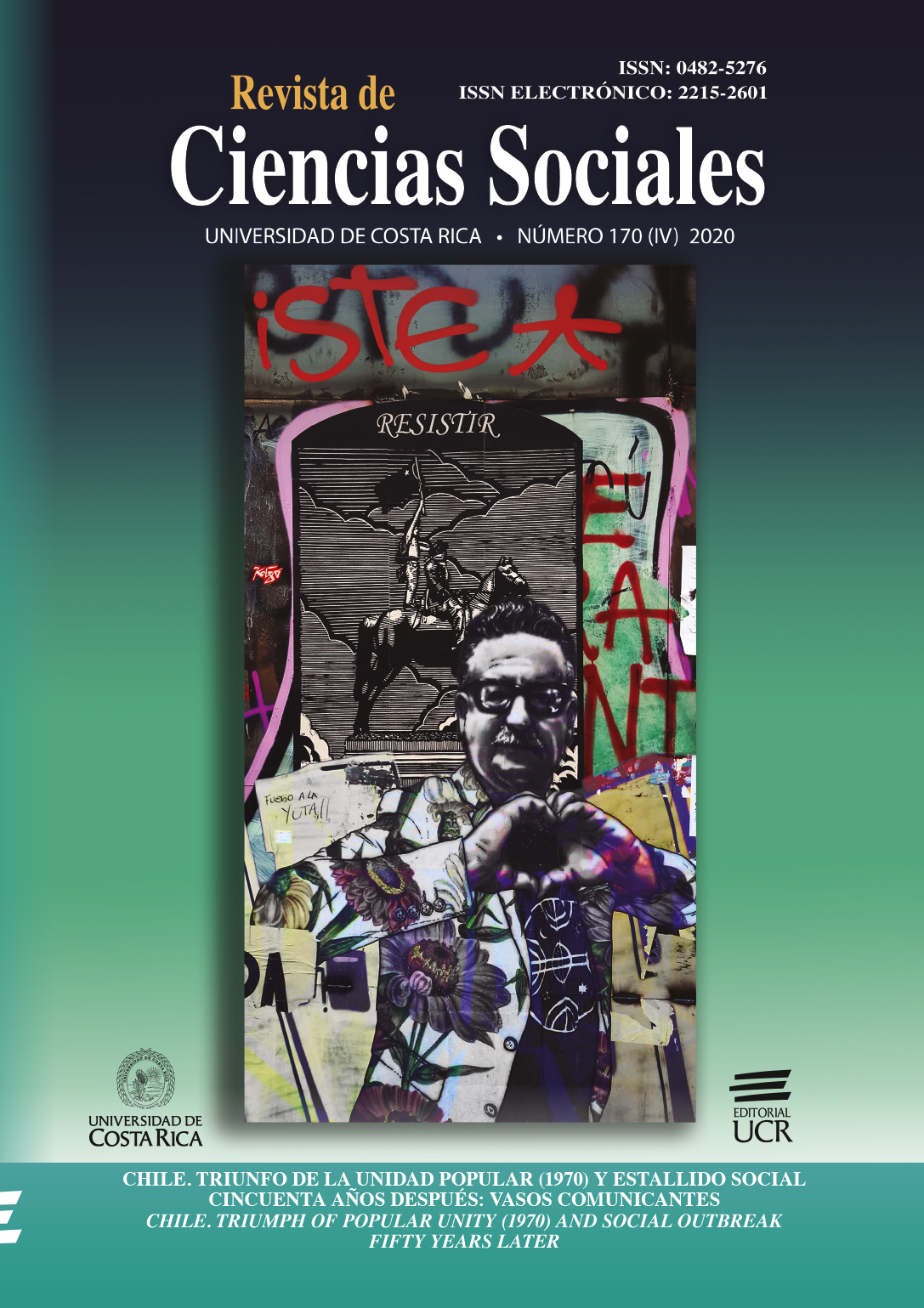Abstract
The main objective of this paper seeks to argue that the Popular Unity represents an important progress regarding the Mapuche people, by incorporating it into its political program; by furthering the Agrarian Reform which increased the amount of land given to the Mapuche; and by promoting the participation of the Mapuche in the elaboration
of Indigenous policies. However, it did have a peasant class bias and also an assimilation component, its extreme institutionalism, perhaps unintentionally, attempted against mapuche’s interests. At the end, it could not transform the structural relationship of domination of the Mapuche by the Chilean State.
##plugins.facebook.comentarios##
Downloads
Download data is not yet available.


